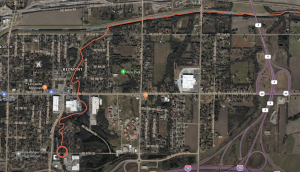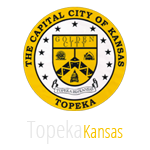On March 28, 2024, the City of Topeka was able to lift the stream advisory for Deer Creek and Shunganunga Creek. This decision was made based on analysis of water samples from both creeks, which showed that water quality had returned to normal levels.
_____
The City of Topeka Utilities Department is advising Topeka area residents to avoid contact with portions of Deer Creek and Shunganunga Creek due to a sanitary sewage overflow.
A sanitary sewer line became obstructed with build-up, causing the main to overflow out of a manhole and allowing an unknown volume of sewage to be released into the creek. As a precaution, residents are advised to avoid contact with the impacted waterway and to keep pets out of the creeks. This advisory will remain in effect until further notice.
The advisory is in place for Deer Creek starting at SE 10th Street east of Deer Creek Pkwy, and continuing north toward SE 6th St. and on to SE 2nd St. where Deer Creek enters the Shunganunga Creek just north of SE 2nd St. & SE Norwood St. From here, the Shunganunga flows east to the Kansas River. (see map below for reference area)

City crews removed the blockage immediately after being notified of the sanitary sewer overflow. Following removal of the blockage, crews cleaned the affected areas and flushed the impacted stormwater conveyance system. Staff will continue to monitor the water along Deer Creek and the Shunganunga Creek, and provide notification when the advisory is lifted. This advisory does not affect tap water.
The Kansas Department of Health and Environment has been notified and will monitor City response and management of the stream advisory.
About Sanitary Sewer Blockages
The City of Topeka has approximately 760 miles of sanitary sewers. Water Pollution Control, a division of the Utilities Department, regularly cleans all sanitary sewer mains throughout the city. Although sanitary sewers are cleaned routinely, the possibility of sewage blockages still exists.
Many sewer blockages can be prevented through awareness and regular cleaning. To help avoid sewer problems, avoid flushing materials that are non-water-soluble down sinks, toilets, and drains. These materials include fats and cooking oils, diapers, baby wet cloths, sanitary disposables, clothing articles, trash, etc. Seepage of sewage onto the ground surface or into waterways can create health risks for both people and animals.
